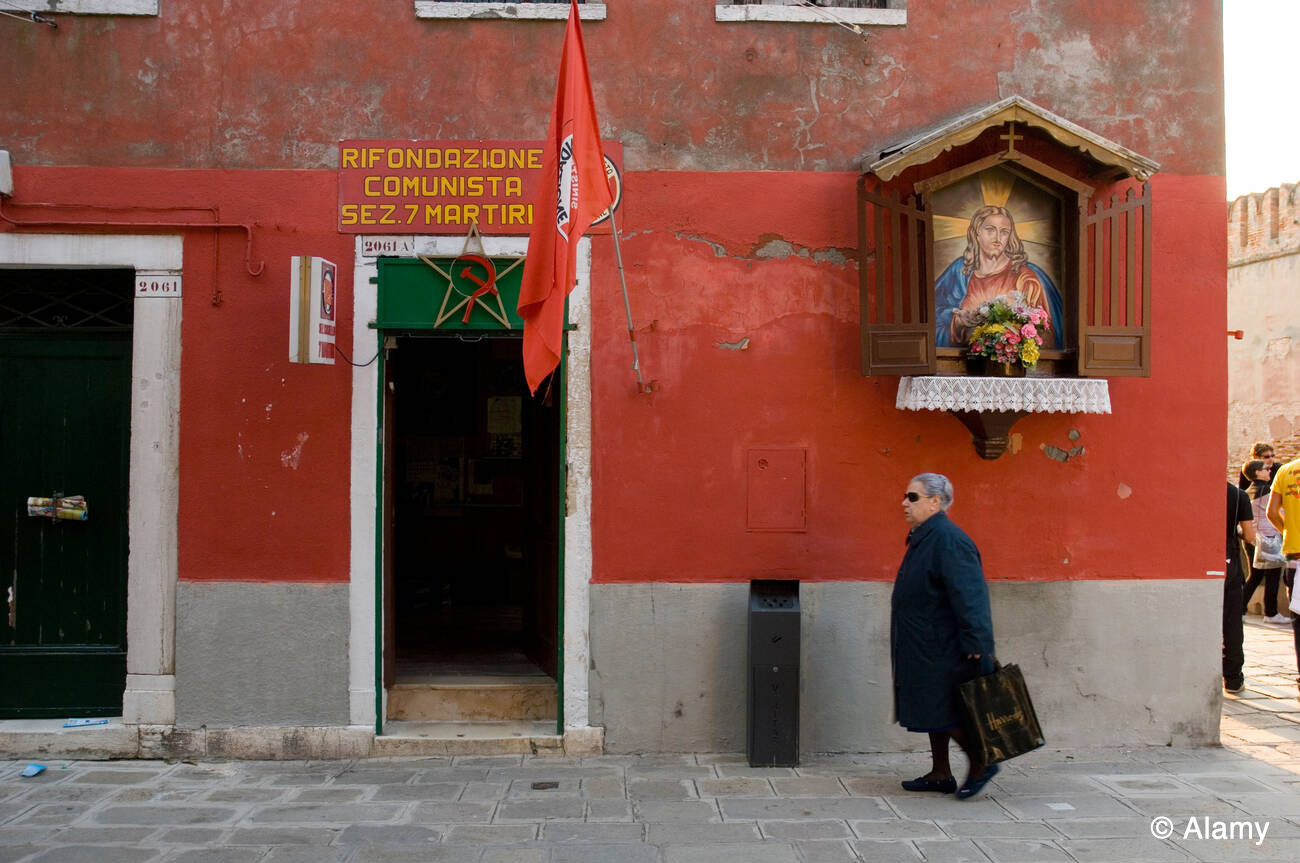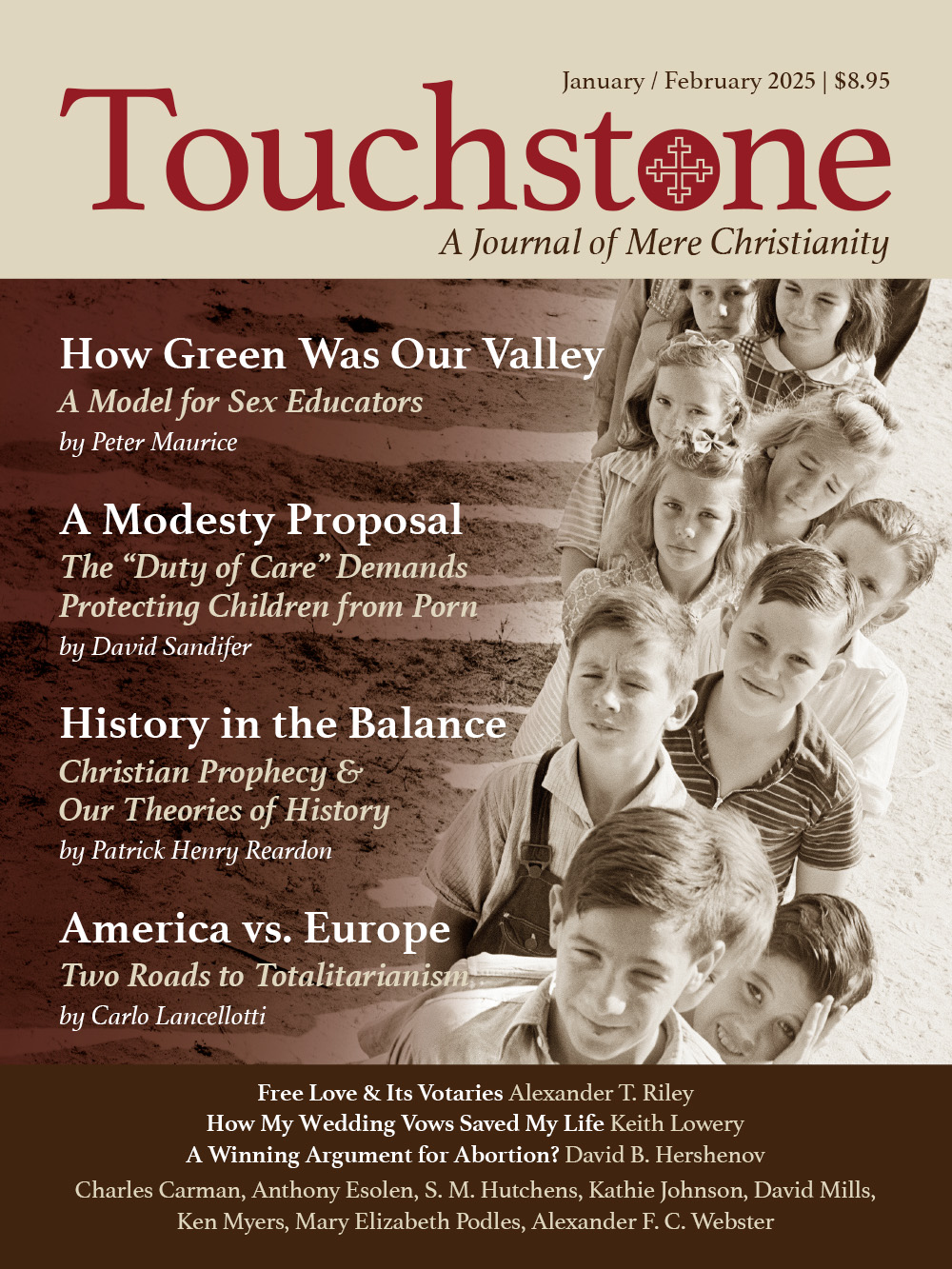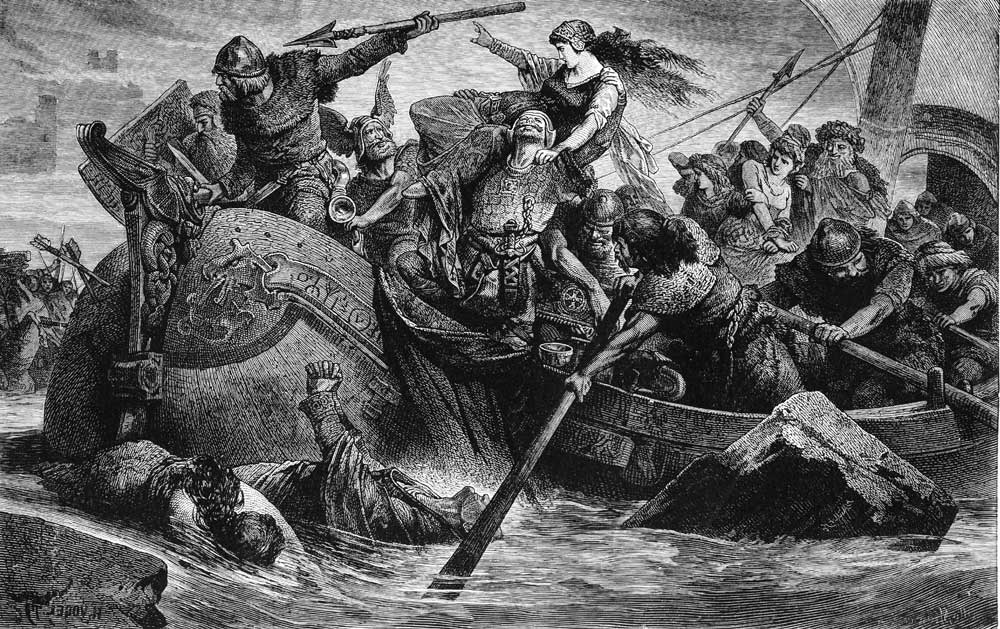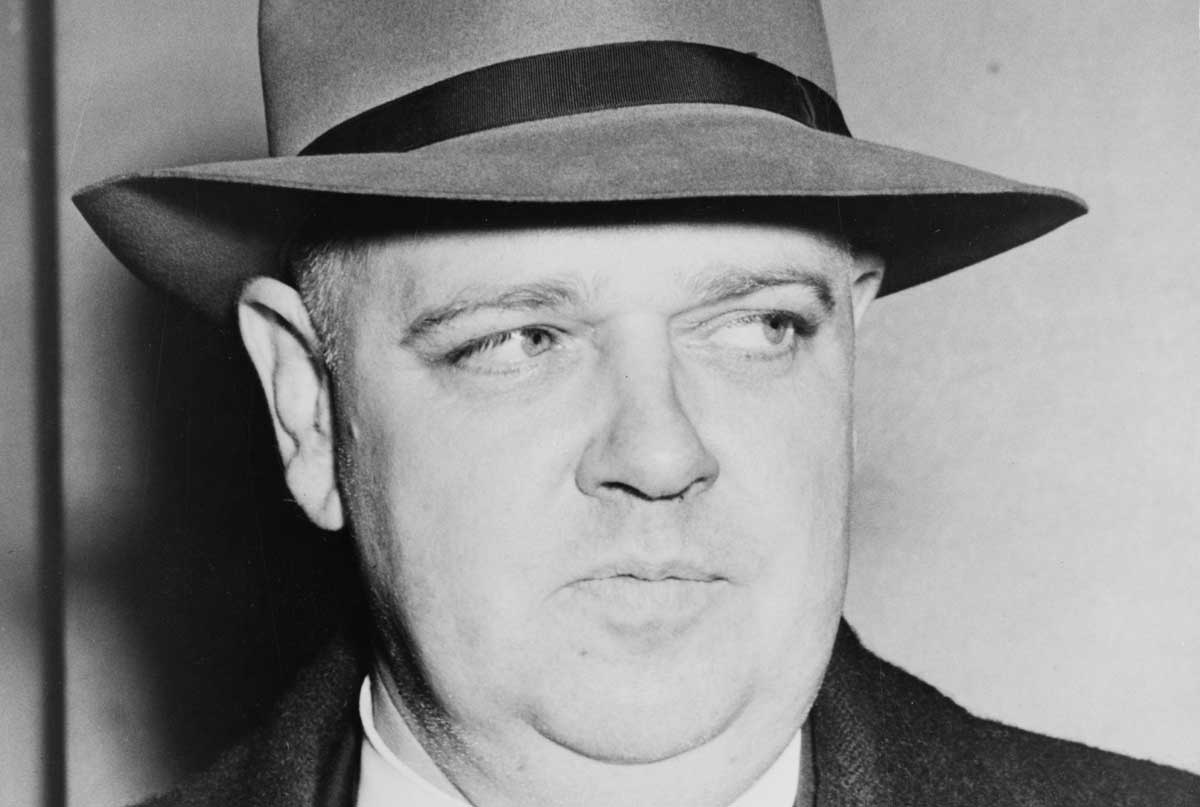America vs. Europe
Two Roads to Totalitarianism
It is a fairly common opinion that Western Europe secularized earlier than the United States. In his recent book, Life in the Negative World, Aaron Renn identifies 2014, the year of the Obergefell decision, as the symbolic date when U.S. culture switched from a “neutral” to a “negative” attitude towards Christianity. He remarks that this was the conclusion of a long process, which included “positive” and “neutral” stages, extending, roughly, from the early 1960s to the early 1990s, and from the early 1990s to 2014, respectively.
This timetable does suggest a slower process of cultural de-Christianization in the U.S. compared to Western Europe. Even leaving aside extreme cases like France around 1900 or Spain during the civil war, most European countries became “negative” well before the end of the twentieth century. We can pick as a symbolic event the 2003 controversy about including Europe’s Christian heritage in the draft of the so-called European Constitution. As you will recall, such inclusion was rejected by a majority of countries over the strenuous objections of Pope John Paul II. But the near-unanimity and the tone of the reactions in France, Germany, Belgium, and the Scandinavian countries revealed a Christian-negative attitude that must have been dominant for a while, probably since the so-called 1968 generation had come into its own fifteen or twenty years earlier.
Conversely, in the early 2000s, many people in the U.S. still believed in a sort of “American exceptionalism” which protected the country from radical secularization. Statistics about church membership and religious practice remained high in the U.S. for many years after they cratered in Western Europe. Evangelical Protestants were for many decades a potent political constituency. The American arrangement of the relations between church and state spared American Christianity the repudiation experienced by European state churches. You are probably familiar with these arguments.
However, this notion of a “delayed” American secularization stands in contrast to the views of many prominent European thinkers of the last century. Curiously, they also thought that America was “special” but in the opposite sense. They deemed the United States to be far more advanced than Europe in terms of a scientistic, utilitarian, individualistic, and materialistic worldview. For example, as early as 1943, when Simone Weil returned from New York to London a few months before dying, she wrote that the great danger threatening European Christianity was “Americanization,” by which she meant detachment from the past, which was slowly killing people’s ability to perceive the supernatural. The “Western” spirit of the Enlightenment “is found in America in its pure state and to the second power, and we are in danger of being devoured by it. . . . the Americanization of Europe would lead to the Americanization of the whole world.”
A few years later, Austrian psychoanalyst Wilhelm Reich, the theoretician of the sexual revolution, emigrated to the U.S. because he saw it as the only country where his revolution could succeed, despite its apparently puritanical sexual morality. In 1954, an important Italian Catholic philosopher, Michele Federico Sciacca, conducted an extensive review of contemporary American philosophy, and to his surprise and dismay concluded that
even if society in the United States calls itself Christian, American philosophy is essentially all atheistic. Not only that: it is marked by the idolatry of science, the tool that will radically change humanity by producing technical development, and will bring to mankind all the happiness that man by his “nature” can desire.
In 1970, another Italian philosopher, Augusto Del Noce, stated that “today America is the wellspring of the principle of disintegration,” although he immediately added (thinking of people like Reich and Marcuse) that “the poisoning of America has largely been the work of Europeans.”
So it appears that in terms of what might be called cultural de-Christianization—detachment from tradition, consumerism, an individualistic and therapeutic idea of happiness, sexual liberation and crisis of the family, etc.—the United States was actually ahead of Europe. But in terms of overt secularization—low religious participation, declining church attendance, low social and political status of Christianity—the U.S. was clearly behind Europe, so much so that those were still the years of the “positive world.” How to explain this apparent paradox?
Europe’s Route
Let me start from the European side. It is generally agreed that in continental Europe modern secularism took off at the time of the French Enlightenment, which, generally speaking, was much more anti-religious than the English-speaking version. Nonetheless, in the eighteenth and nineteenth centuries, atheism and secularism remained elite phenomena. The detachment from Christianity of large parts of the population occurred after World War II. How did it happen? What I think needs to be said in this regard is that in continental Europe, Marxism played a major role, not so much as a political movement but as a “counter--religion” or “substitute for religion,” which made possible a secularization of the masses that the intellectuals of the old Enlightenment had not been able to achieve.
Most of us are familiar with Marxism as a socio--political theory, but not everybody appreciates how much it was a comprehensive worldview with cultural and moral implications, how much it had “religious” appeal. At the core, it was a faith about redemption, to be delivered not by divine grace but by the mechanisms of social and economic history. It was this “messianic” flavor that made it appealing to the masses. Let me mention a famous Marxist thinker from the last century, my compatriot Antonio Gramsci. His overarching concern was to bring together intellectuals and the common people in a modern and secular worldview. Curiously, his model was medieval Catholicism. For Gramsci, the goal of communism exceeds politics in the narrow sense, because it must unify people around a new religious faith. As he wrote in 1916, “Socialism is the religion destined to kill Christianity.”
Carlo Lancellotti is Professor of Mathematics at the College of Staten Island of CUNY and a faculty member in the Physics Program at the CUNY Graduate Center. He has translated three volumes of works by Augusto Del Noce, the late Italian philosopher and political thinker.
subscription options
Order
Print/Online Subscription

Get six issues (one year) of Touchstone PLUS full online access including pdf downloads for only $39.95. That's only $3.34 per month!
Order
Online Only
Subscription

Get a one-year full-access subscription to the Touchstone online archives for only $19.95. That's only $1.66 per month!
bulk subscriptions
Order Touchstone subscriptions in bulk and save $10 per sub! Each subscription includes 6 issues of Touchstone plus full online access to touchstonemag.com—including archives, videos, and pdf downloads of recent issues for only $29.95 each! Great for churches or study groups.
Transactions will be processed on a secure server.
more on History from the online archives

15.6—July/August 2002
Things Hidden Since the Beginning of the World
The Shape of Divine Providence & Human History by James Hitchcock
more from the online archives
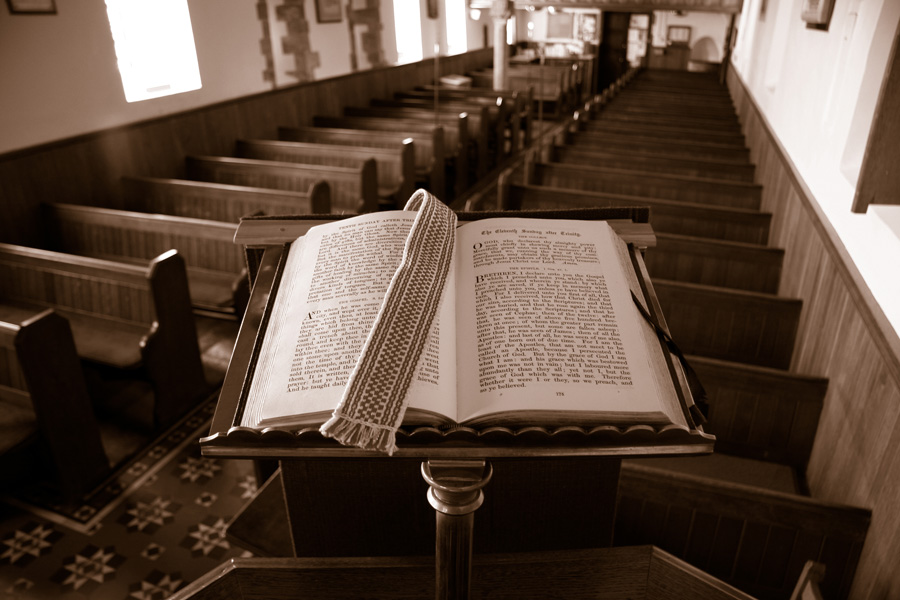
8.4—Fall 1995
The Demise of Biblical Preaching
Distortions of the Gospel and its Recovery by Donald G. Bloesch
calling all readers
Please Donate
"There are magazines worth reading but few worth saving . . . Touchstone is just such a magazine."
—Alice von Hildebrand
"Here we do not concede one square millimeter of territory to falsehood, folly, contemporary sentimentality, or fashion. We speak the truth, and let God be our judge. . . . Touchstone is the one committedly Christian conservative journal."
—Anthony Esolen, Touchstone senior editor





